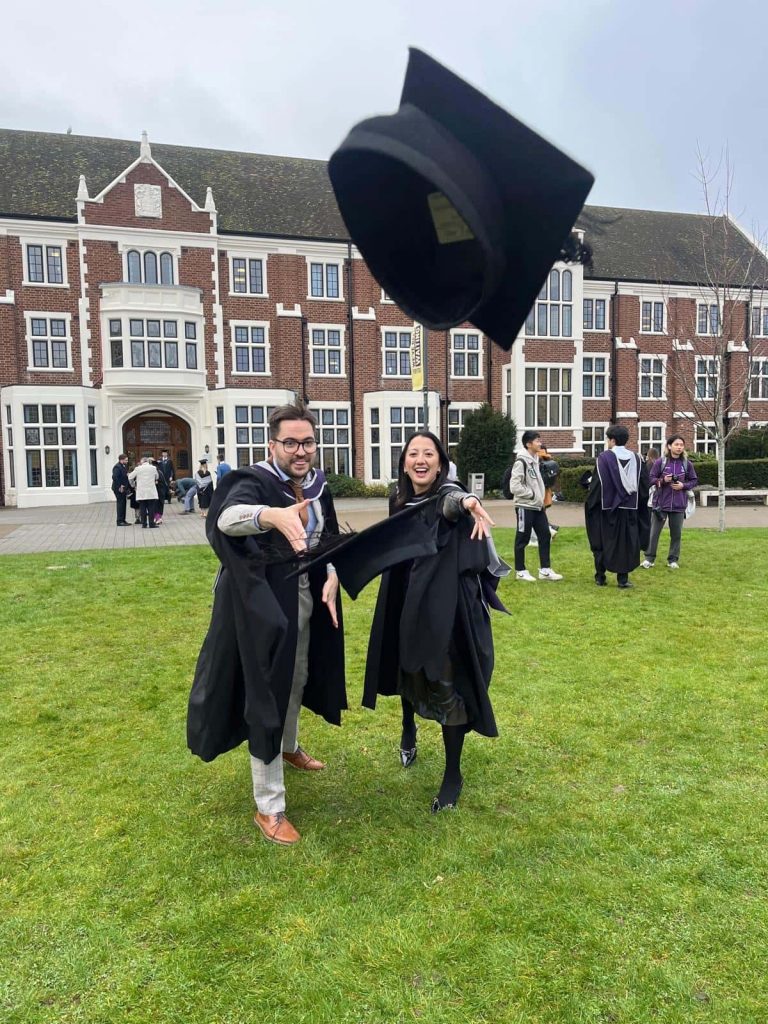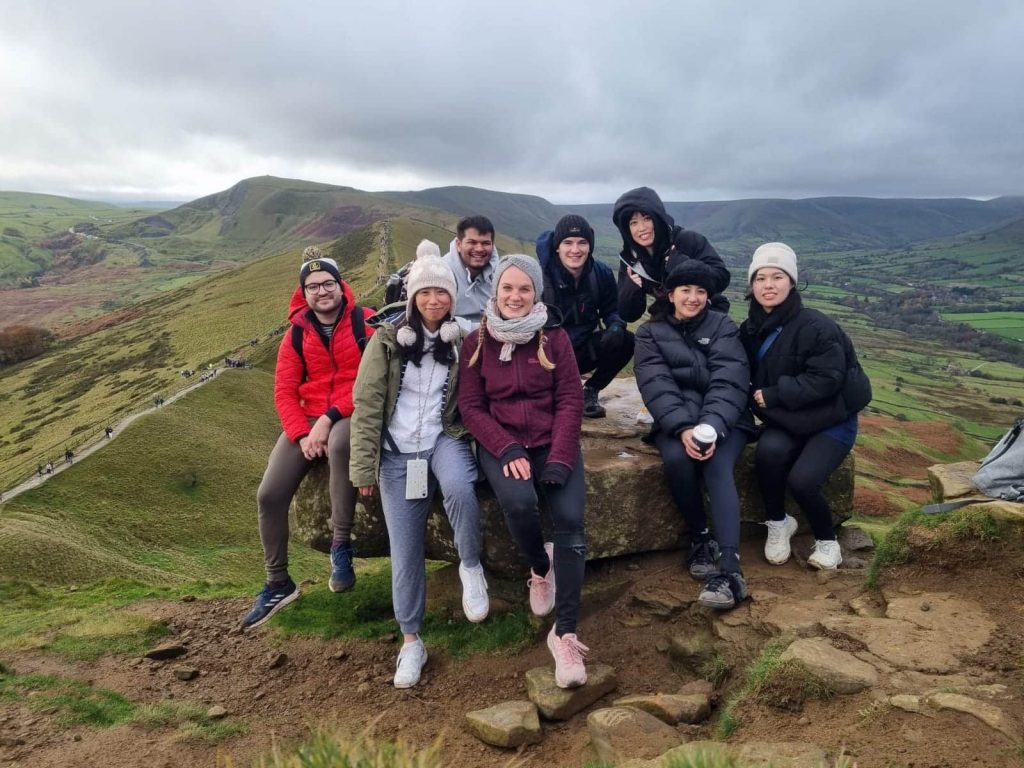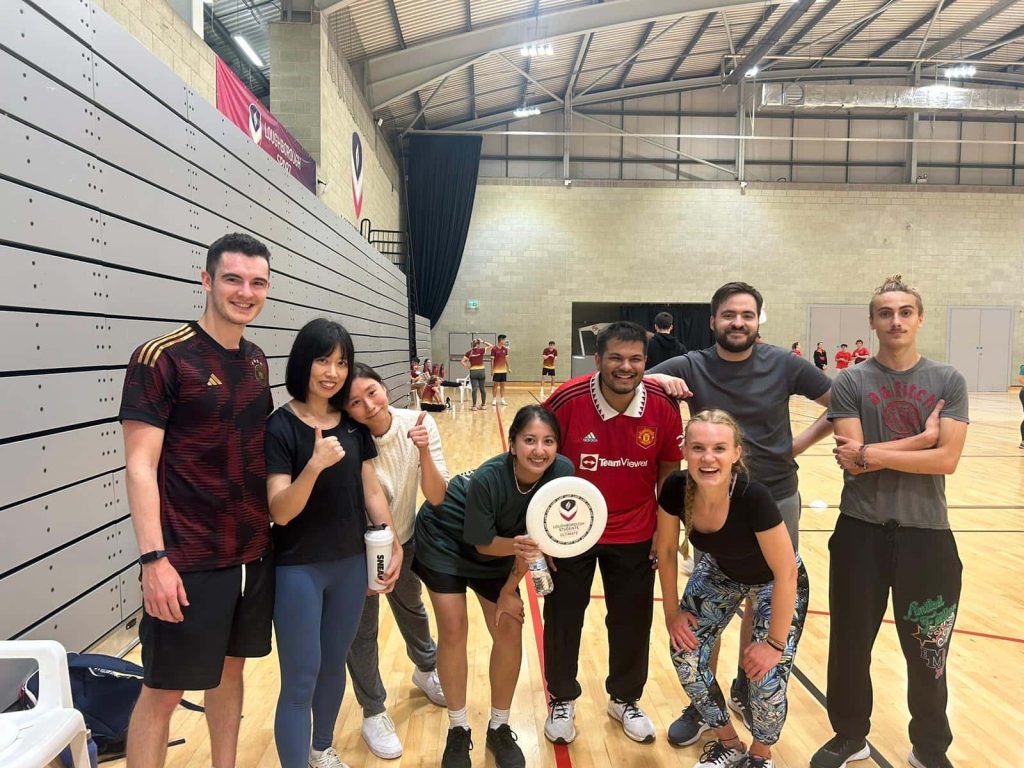Taking the Leap – My Journey Back to Academia
Hi everyone, I’m Morgan, a PhD student at Loughborough University. But my journey here started when I enrolled in the Ergonomics and Human Factors Master’s course. In this blog, I want to share my experience studying the Master’s and what life at Loughborough has been like – especially returning to university after four years working in industry.

Why Go Back to Studying – and Why Loughborough?
Before returning to study, I worked as an engineer in the defence sector. While I valued that experience, I wanted to shift towards a career that focused more on people than products. That’s what led me to ergonomics: I was drawn to the idea of designing with humans in mind and creating experiences that genuinely work for people.
I chose Loughborough because of its renowned reputation in ergonomics. As many of the staff will often tell you, Loughborough was the first institution in the world to offer ergonomics as a taught programme – there really was no better place to take the leap.
Taking the Leap from Work to Uni
I had a lot of anxiety about quitting work and going back to study. In many ways, it felt like a step backward. I worried about writing assignments again, attending lectures, meeting deadlines – and referencing (I really don’t like referencing). But I reminded myself that this Master’s was about long-term growth. In hindsight, it was absolutely the right decision.
What surprised me most was how smoothly I transitioned back into the student routine. My time in industry taught me time management, discipline, and independence – all of which helped me stay on top of the workload and maintain a good work/life balance. When I did struggle (mostly with referencing), there were plenty of academic resources and support services to help.
Most importantly, ergonomics is a practice-based field, and my time in industry gave me real-world experience to draw from. It helped me connect theory to application and deepened my understanding of the course content.

What to Expect from Block Teaching
One thing that sets the Ergonomics course apart is its block teaching format. Unlike most postgraduate programmes, where modules run across a semester, each module here is delivered in an intensive week-long block, with breaks in between for independent study.
This format supports part-time students – many of whom are working in industry – and creates an opportunity for a collaborative environment. You’ll learn alongside classmates who bring practical insights, enriching classroom discussions.
That said, it’s not without its challenges. I’ll be honest – the first few modules felt like “information overload.” You’re essentially covering a semester’s worth of content in five days, and it can be overwhelming. The lecturers do a great job of structuring the material into manageable sessions, but it’s still a demanding week.
If you’re about to start a course like this, here are two tips that helped me:
- Prioritise sleep. These weeks are intense, and being well-rested makes a huge difference by Friday.
- Bring snacks. The days are long, and snacks help keep your energy up – but don’t forget to share!
Despite the intensity, the biggest benefit of block teaching is the ability to focus on one subject at a time. You’re not juggling multiple deadlines or switching between topics – you can really dive deep into the content and give each module 100% effort. That level of immersion helped me develop a deeper understanding and made the overall experience far more rewarding.

University Life
The block teaching format also means you often get at least two weeks between modules. While some of that time is for independent study and assignments, you’ll also find you have more free time than you might expect. My advice? Make the most of the wider student experience – especially since you’ll actually have the time for it.
Moving to Loughborough meant leaving behind my family, friends, and support network – and that was daunting. If you find yourself in a similar position, I highly recommend living in university halls. It’s a great way to meet new people, many of whom are in the same boat. It was also an opportunity to meet people from around the world. Getting to know people from different countries and cultures made the world feel a little more connected and a lot less distant.
My flatmates and I hit it off right away. During our first week, we spent evenings cooking and just getting to know each other. It gave me an instant sense of community. We liked each other so much that we planned activities throughout the year. We hiked, skied, watched many, many musicals, and even went on holiday together! One of the perks of making international friends is that they’re often keen to show you around their home country.
I’d also recommend making the most of the facilities Loughborough University has to offer – especially when it comes to sport. The university is well-known for it, after all. And take it from someone who is far from athletically inclined: living in Loughborough is the perfect opportunity to find a sport you enjoy. There are plenty of accessible sessions designed to help you try out a range of activities and see what clicks. For me, it was frisbee and squash. Getting regular exercise really helped with my mental health – it gave me an outlet, boosted my energy, and ultimately helped me stay focused on my studies.

To Summarise…
If you’re considering a master’s at Loughborough, especially if you’re returning to study after working like me, see it as an opportunity for growth – both professionally and personally.
In the year I did my master’s, I earned a degree that demonstrated my academic abilities, became healthier by getting involved in sport, and made life-long connections with people from around the world. It had such a positive effect on me that I haven’t left – I’m now doing a PhD here, building on what I learned from the Ergonomics course to further my research. Still playing sport. And maintaining deep and meaningful friendships.

Student Life
Find out what makes 'The Loughborough Experience' by reading our student blogs.